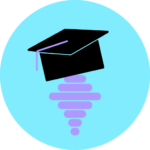The Evolution of Massive Open Online Courses
Massive Open Online Courses (MOOCs) have revolutionized the way individuals access and engage with educational content on a global scale.
Understanding the Origins of MOOCs
The concept of Massive Open Online Courses, or MOOCs, emerged as a transformative force in the education sector, aiming to make quality education accessible to a broader audience. The origins of MOOCs can be traced back to the early 2000s, when the internet began to provide new opportunities for knowledge dissemination. Initially, online courses were limited in scope and often lacked the interactive features seen today. However, the potential was clear: technology could break down traditional barriers to education.
MOOCs gained significant momentum with the rise of platforms that offered free access to courses from top universities. These platforms, through partnerships with educational institutions, allowed learners worldwide to access lectures, readings, and assessments that were previously confined to the walls of a classroom. This democratization of learning was a significant shift, as it provided people from diverse backgrounds the chance to learn from renowned educators without the financial and geographical constraints of traditional education systems.
The Growth and Diversification of Course Offerings
As MOOCs gained popularity, the range of subjects and courses expanded rapidly. Initially, the focus was on areas like computer science and mathematics, which were well-suited to an online format. However, as the technology and pedagogy evolved, so did the diversity of courses. Today, MOOCs cover a wide array of subjects, including humanities, social sciences, arts, and professional skills.
This diversification was supported by advancements in digital tools that enhanced the learner experience. Interactive elements such as quizzes, forums, and peer reviews became integral parts of MOOCs, providing a richer and more engaging learning environment. Additionally, the incorporation of multimedia content, such as videos and podcasts, catered to different learning styles, further broadening the appeal of MOOCs.
MOOCs and Their Impact on Traditional Education
The rise of MOOCs has prompted traditional educational institutions to reevaluate their models. Universities and colleges began to incorporate online learning into their curricula, recognizing the potential of blending traditional and digital methodologies. This hybrid approach has allowed institutions to reach a wider audience and offer more flexible learning options to students.
Moreover, MOOCs have influenced the way educators design and deliver content. The emphasis on accessibility and engagement has led to innovations in teaching practices, with educators adopting more interactive and student-centered learning approaches. This shift has not only benefited online learners but also enriched traditional classroom experiences.
Challenges and Criticisms of MOOCs
Despite their many advantages, MOOCs have faced criticism and challenges. One of the primary concerns is the low completion rates, as many participants do not finish the courses they enroll in. This issue highlights the need for better learner support and engagement strategies to maintain interest and motivation throughout the course.
Additionally, while MOOCs offer free access to educational content, the lack of formal accreditation has been a barrier for some learners seeking recognition for their efforts. In response, some platforms have introduced certification options for a fee, providing a way for learners to formalize their achievements. However, this raises questions about the accessibility of MOOCs for individuals who cannot afford these additional costs.
The Future of MOOCs and Online Learning
Looking ahead, the future of MOOCs is promising, with continuous innovations anticipated in both technology and pedagogy. As artificial intelligence and machine learning become more integrated into educational platforms, personalized learning experiences will become more prevalent, catering to the unique needs and preferences of individual learners.
Furthermore, the global demand for lifelong learning and upskilling is likely to drive the evolution of MOOCs. With the rapid pace of technological advancements and changing job markets, individuals are seeking opportunities to update their skills and knowledge throughout their careers. MOOCs, with their flexibility and accessibility, are well-positioned to meet this demand.
Conclusion
In conclusion, the evolution of Massive Open Online Courses has reshaped the landscape of education, making learning more accessible and inclusive. While challenges remain, the benefits of MOOCs in broadening access to quality education cannot be overstated. As technology continues to advance, the potential for MOOCs to further transform education and empower learners worldwide is immense. For individuals seeking flexible and diverse learning opportunities, MOOCs offer a valuable resource that aligns with the needs of a dynamic and interconnected world.
